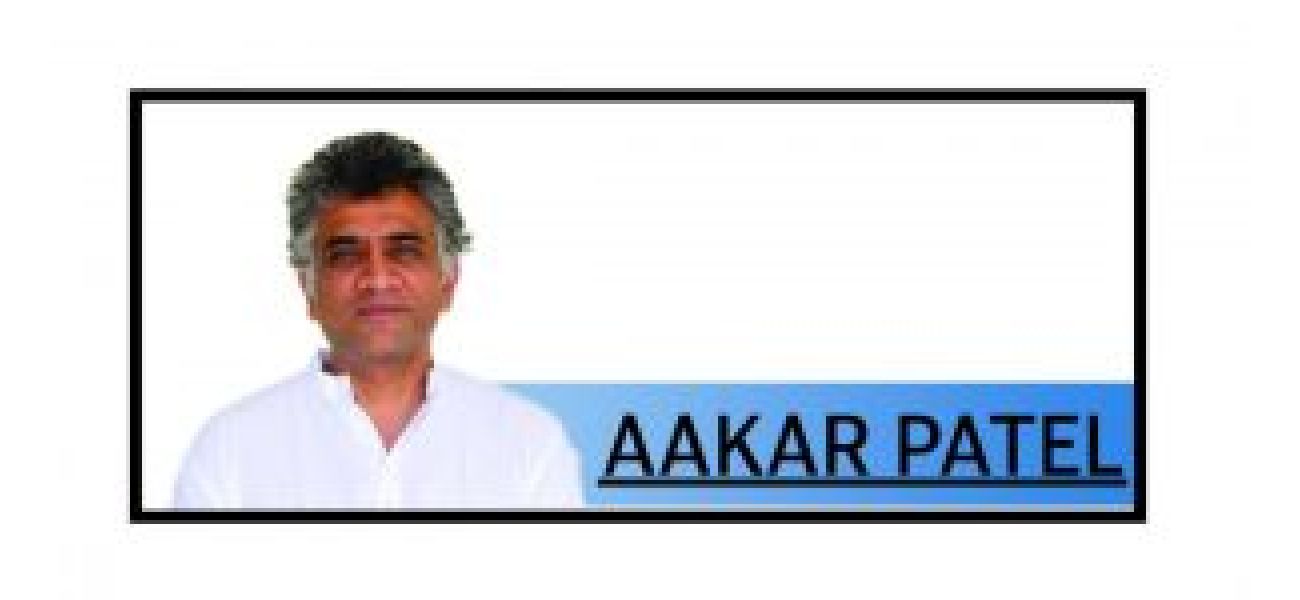A collection of ideas and musings.
The RSS is marking its 100th anniversary and reflecting on its achievements in cultural and political spheres. This column clarifies its role and ideology for readers.
September 21st 2025.

As the Rashtriya Swayamsevak Sangh (RSS) celebrates its centenary and reflects on its remarkable achievements in both cultural and political spheres, it is important for those familiar with the organization to understand its core principles. For this reason, this column will delve into the thoughts and ideas of MS Golwalkar, the longest-serving chief of the RSS, through his book "Bunch of Thoughts".
It is worth noting that "Bunch of Thoughts" is not a traditional written work, but rather a compilation of Golwalkar's speeches, interviews, and excerpts. This may give the book a disjointed feel, but it is still worth exploring. In this column, I will present Golwalkar's views as objectively as possible.
One of the key principles of the RSS, as highlighted by Golwalkar, is its emphasis on the term "Rashtriya" rather than "Hindu". According to him, the term "Rashtriya" naturally encompasses the Hindu identity, making the term "Hindu" redundant. In fact, the first head of the RSS, Keshav Hedgewar, believed that using the term "Hindu" would limit their status as the true nationals of India.
Golwalkar also criticizes the Hindu Mahasabha, led by Vinayak Damodar Savarkar, for their resolution that the Congress should not hold talks with the Muslim League and instead leave it to the Hindu Mahasabha. He argues that this approach undermines the fact that India is a Hindu Rashtra, and giving equal status to the Muslims is a distortion of reality.
Another important issue for Golwalkar is the idea of federalism. He believes that the only solution is to have a unitary form of government by amending the Constitution. In his view, India is one nation, and therefore should have a single government and legislature. While executive authority can be distributed, legislative power should remain centralized, rather than devolving to the states. This, he believes, is the true essence of democracy.
Golwalkar also emphasizes the uniqueness of India in the world, due to its Hindu thought. He argues that Hinduism is the only religion that truly understands the nature of the soul, as evidenced by the sages who have been able to unravel the mysteries of human nature. He contrasts this with Westerners, who may have a deep understanding of the material world, but lack understanding of the spiritual world. However, he also expresses concern that Hindus are moving away from their ancient wisdom, and it is the responsibility of the RSS to revive and organize Hindu society.
According to Golwalkar, progressive societies that promote permissive behavior in areas such as sex, food, and family life, are a threat to the social fabric. He believes that the individual must prioritize the larger nation over personal desires, to ensure the happiness and well-being of society. This, he argues, is the essence of Hindu philosophy.
Golwalkar also acknowledges that not all Hindus possess the same level of knowledge and understanding of Hinduism. Therefore, he believes it is crucial to properly educate and enlighten the masses, rather than just focusing on literacy. He also argues that democracy is flawed because it excludes experts and favors politicians. In his view, panchayats (village councils) should be organized along caste lines, to represent the interests of society as a whole. He also believes that elections should not be competitive, but rather unanimous.
For Golwalkar, the concept of Hindu Rashtra is not just about political and economic rights, but is rooted in culture. He argues that it is the pursuit of God that truly defines a Hindu Rashtra, and not just the worship of idols or the pursuit of material wealth. He believes that the ancient saying "Our People Are Our God" should be interpreted as "Our people who are Hindu are our God". This is further exemplified in the caste system, where each caste represents a different part of the divine body.
Golwalkar also discusses the geographical boundaries of India, stating that it extends beyond the Himalayas and includes places of pilgrimage in the north. He also lays claim to regions such as Tibet, Afghanistan, Burma, Iran, and Lanka, which have been mentioned in Hindu epics. He believes that India, with its diverse cultural and spiritual heritage, is a sacred land and should be revered as such.
In conclusion, Golwalkar's ideas and beliefs are deeply rooted in Hinduism and its principles. He sees Hinduism as a unique and special offering to the world, and believes that it is the responsibility of the RSS to preserve and promote it within India. He also highlights the importance of unity and prioritizing the nation over individual desires, as well as the need for proper education and a caste-based society. These are just some of the many ideas presented in "Bunch of Thoughts", and we will continue to explore them in future columns.
It is worth noting that "Bunch of Thoughts" is not a traditional written work, but rather a compilation of Golwalkar's speeches, interviews, and excerpts. This may give the book a disjointed feel, but it is still worth exploring. In this column, I will present Golwalkar's views as objectively as possible.
One of the key principles of the RSS, as highlighted by Golwalkar, is its emphasis on the term "Rashtriya" rather than "Hindu". According to him, the term "Rashtriya" naturally encompasses the Hindu identity, making the term "Hindu" redundant. In fact, the first head of the RSS, Keshav Hedgewar, believed that using the term "Hindu" would limit their status as the true nationals of India.
Golwalkar also criticizes the Hindu Mahasabha, led by Vinayak Damodar Savarkar, for their resolution that the Congress should not hold talks with the Muslim League and instead leave it to the Hindu Mahasabha. He argues that this approach undermines the fact that India is a Hindu Rashtra, and giving equal status to the Muslims is a distortion of reality.
Another important issue for Golwalkar is the idea of federalism. He believes that the only solution is to have a unitary form of government by amending the Constitution. In his view, India is one nation, and therefore should have a single government and legislature. While executive authority can be distributed, legislative power should remain centralized, rather than devolving to the states. This, he believes, is the true essence of democracy.
Golwalkar also emphasizes the uniqueness of India in the world, due to its Hindu thought. He argues that Hinduism is the only religion that truly understands the nature of the soul, as evidenced by the sages who have been able to unravel the mysteries of human nature. He contrasts this with Westerners, who may have a deep understanding of the material world, but lack understanding of the spiritual world. However, he also expresses concern that Hindus are moving away from their ancient wisdom, and it is the responsibility of the RSS to revive and organize Hindu society.
According to Golwalkar, progressive societies that promote permissive behavior in areas such as sex, food, and family life, are a threat to the social fabric. He believes that the individual must prioritize the larger nation over personal desires, to ensure the happiness and well-being of society. This, he argues, is the essence of Hindu philosophy.
Golwalkar also acknowledges that not all Hindus possess the same level of knowledge and understanding of Hinduism. Therefore, he believes it is crucial to properly educate and enlighten the masses, rather than just focusing on literacy. He also argues that democracy is flawed because it excludes experts and favors politicians. In his view, panchayats (village councils) should be organized along caste lines, to represent the interests of society as a whole. He also believes that elections should not be competitive, but rather unanimous.
For Golwalkar, the concept of Hindu Rashtra is not just about political and economic rights, but is rooted in culture. He argues that it is the pursuit of God that truly defines a Hindu Rashtra, and not just the worship of idols or the pursuit of material wealth. He believes that the ancient saying "Our People Are Our God" should be interpreted as "Our people who are Hindu are our God". This is further exemplified in the caste system, where each caste represents a different part of the divine body.
Golwalkar also discusses the geographical boundaries of India, stating that it extends beyond the Himalayas and includes places of pilgrimage in the north. He also lays claim to regions such as Tibet, Afghanistan, Burma, Iran, and Lanka, which have been mentioned in Hindu epics. He believes that India, with its diverse cultural and spiritual heritage, is a sacred land and should be revered as such.
In conclusion, Golwalkar's ideas and beliefs are deeply rooted in Hinduism and its principles. He sees Hinduism as a unique and special offering to the world, and believes that it is the responsibility of the RSS to preserve and promote it within India. He also highlights the importance of unity and prioritizing the nation over individual desires, as well as the need for proper education and a caste-based society. These are just some of the many ideas presented in "Bunch of Thoughts", and we will continue to explore them in future columns.
[This article has been trending online recently and has been generated with AI. Your feed is customized.]
[Generative AI is experimental.]
0
0
Submit Comment





